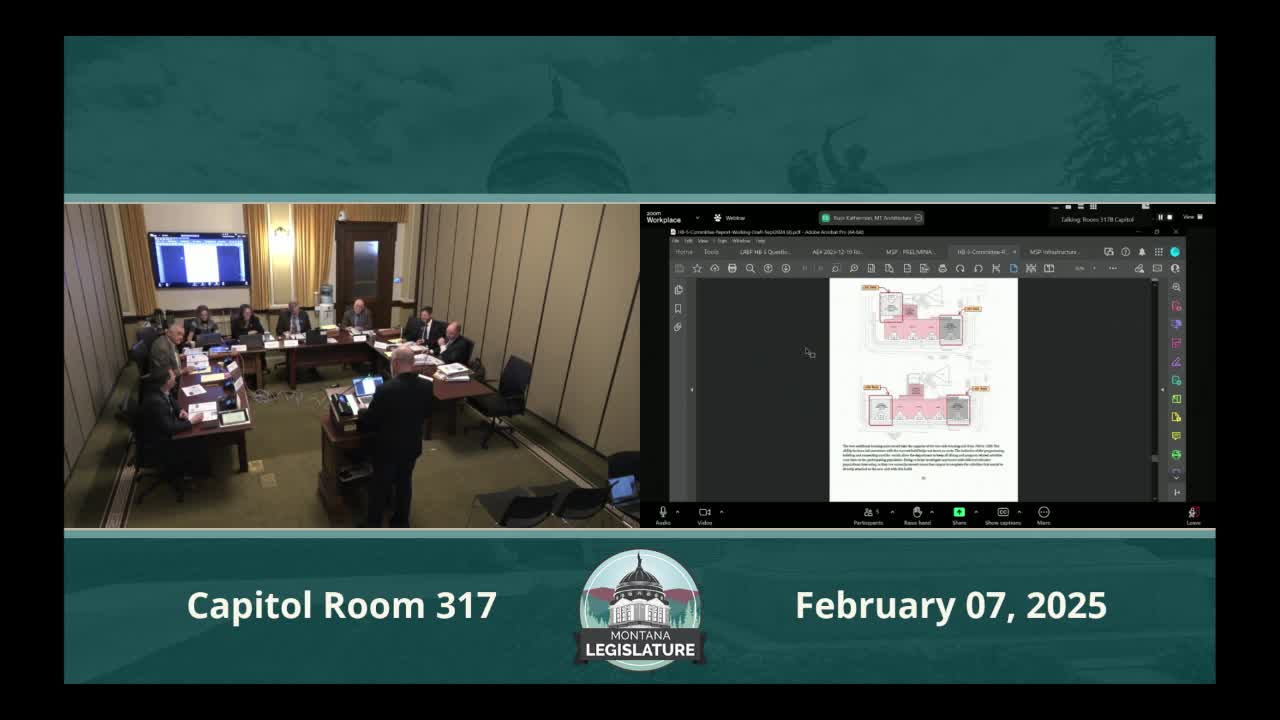Subcommittee hears requests for hospital HVAC upgrades and Sprat unit rehab at state hospital
Get AI-powered insights, summaries, and transcripts
Subscribe
Summary
Lawmakers reviewed a request to replace aging mechanical systems at a state hospital and discussed renovations to the Sprat unit, which serves patients with traumatic brain injury and dementia. Witnesses said the hospital needs upgrades to regain federal certifications and to address life‑safety and modern behavioral‑health design features.
A House subcommittee reviewed two connected capital requests: a comprehensive mechanical system replacement at the state hospital and rehabilitation work on the Sprat unit, which houses residents with traumatic brain injury, dementia and severe behavioral challenges.
Why it matters: Witnesses said aging HVAC and refrigeration systems jeopardize compliance with federal Medicare/Medicaid certification and impose recurring costs to the state. Upgrades would reduce the risk of equipment failure, improve patient safety and support re‑certification that affects federal reimbursement.
Russ Catherman and other witnesses told the committee the hospital’s mechanical equipment is about 30 years old, uses phased‑out refrigerants (R‑22) and has experienced boiler failures in recent months. The division said the hospital previously lost some Medicare/Medicaid billing authority and the state general fund was absorbing about $7 million annually because of that loss; work funded in a prior session targeted compliance upgrades for residential care populations. The new request follows an engineering study that recommended preemptive replacement before more failures occur.
Committee members also reviewed the Sprat unit request. Participants described Sprat as a long‑term care environment for people with severe cognitive and behavioral conditions — patients who cannot be managed in conventional nursing homes. Witnesses said Sprat often houses people with traumatic brain injury, Alzheimer’s or other dementia who are physically or verbally aggressive or prone to absconding. Catherman said the unit lacks modern suicide‑resistant and ligature‑resistant features that contemporary behavioral‑health facilities use.
Senators and representatives pressed agency staff for timeline and cost details. Witnesses said current hospital renovations are underway in phases, with the contractor working on central common areas first and a target to finish by December of the year cited so the department can reapply for certification. Lawmakers requested more detail on how many compliance issues stem from infrastructure versus staffing and other operational factors.
What’s next: Committee staff will gather more precise cost, schedule, and certification details, and the agency indicated further bills are likely to address women's prison needs and other facilities.
